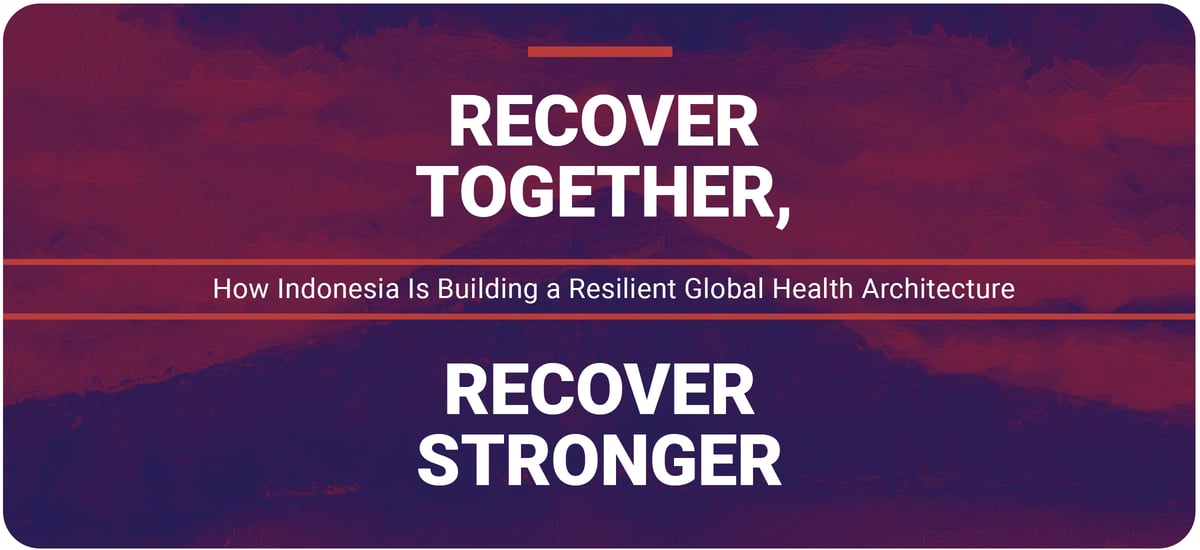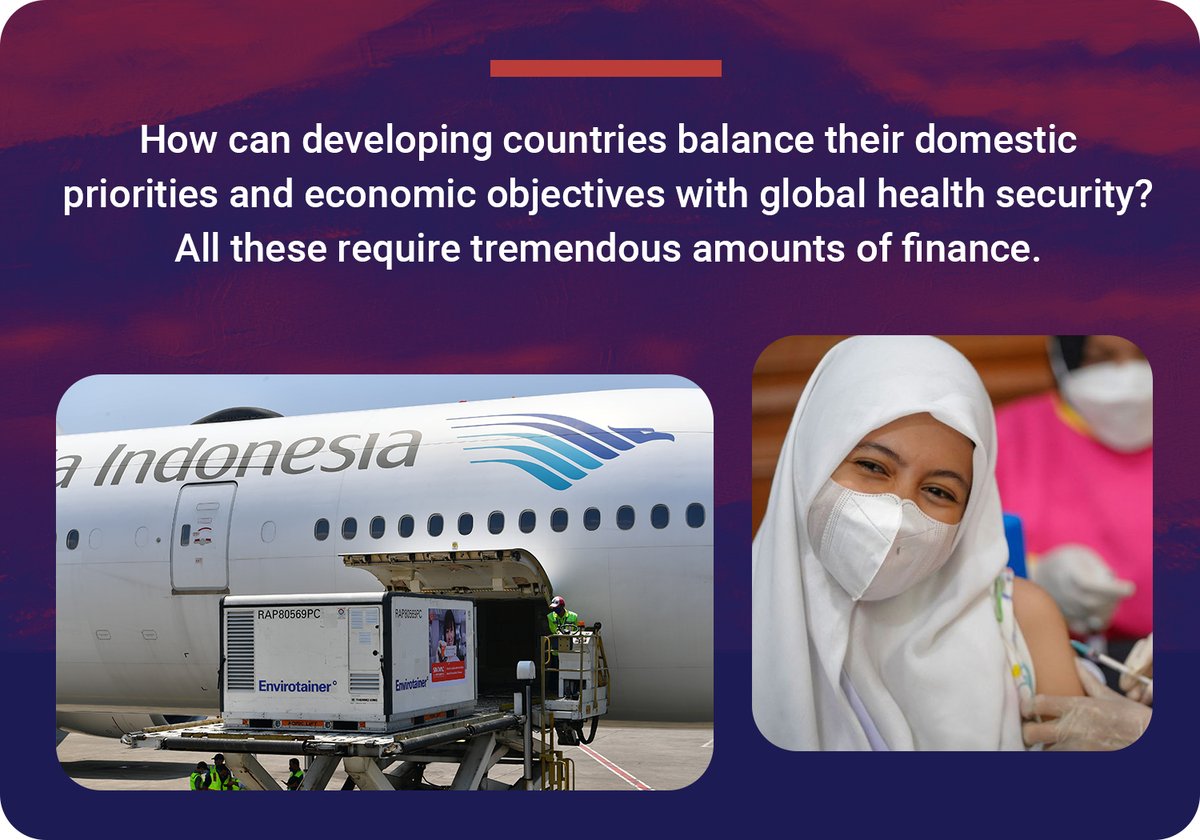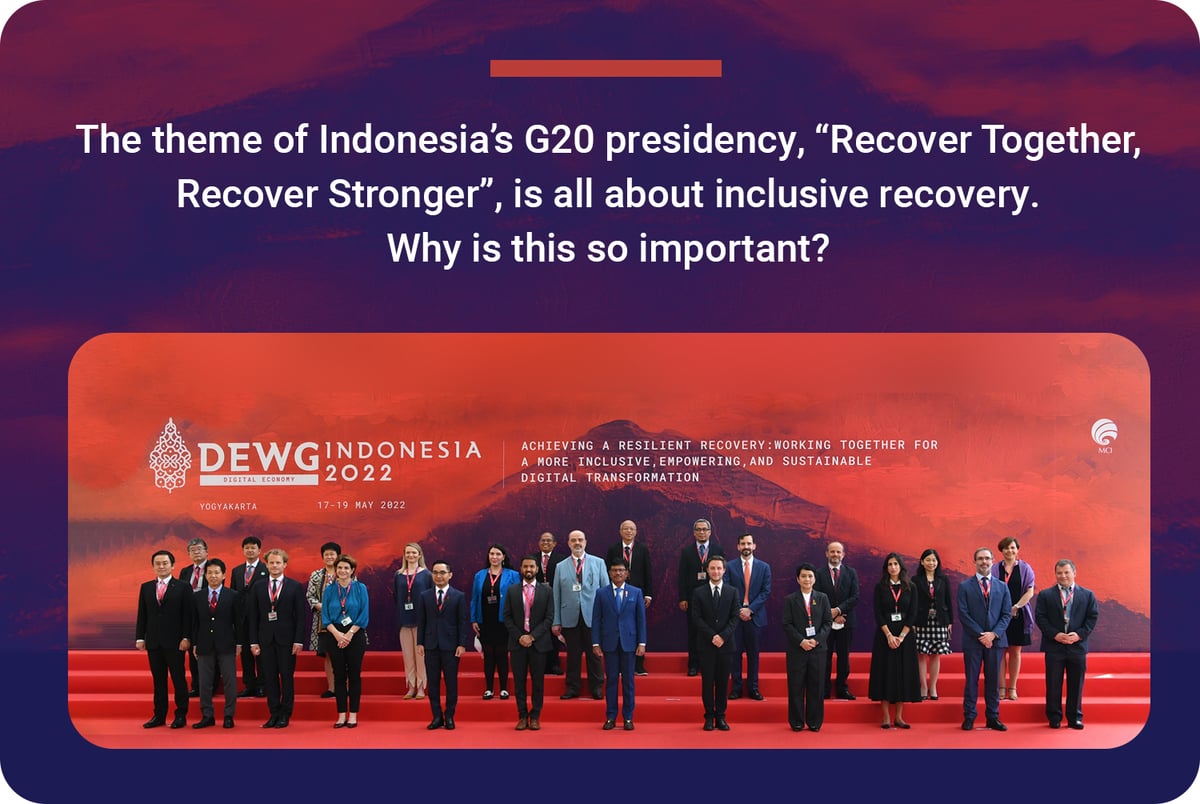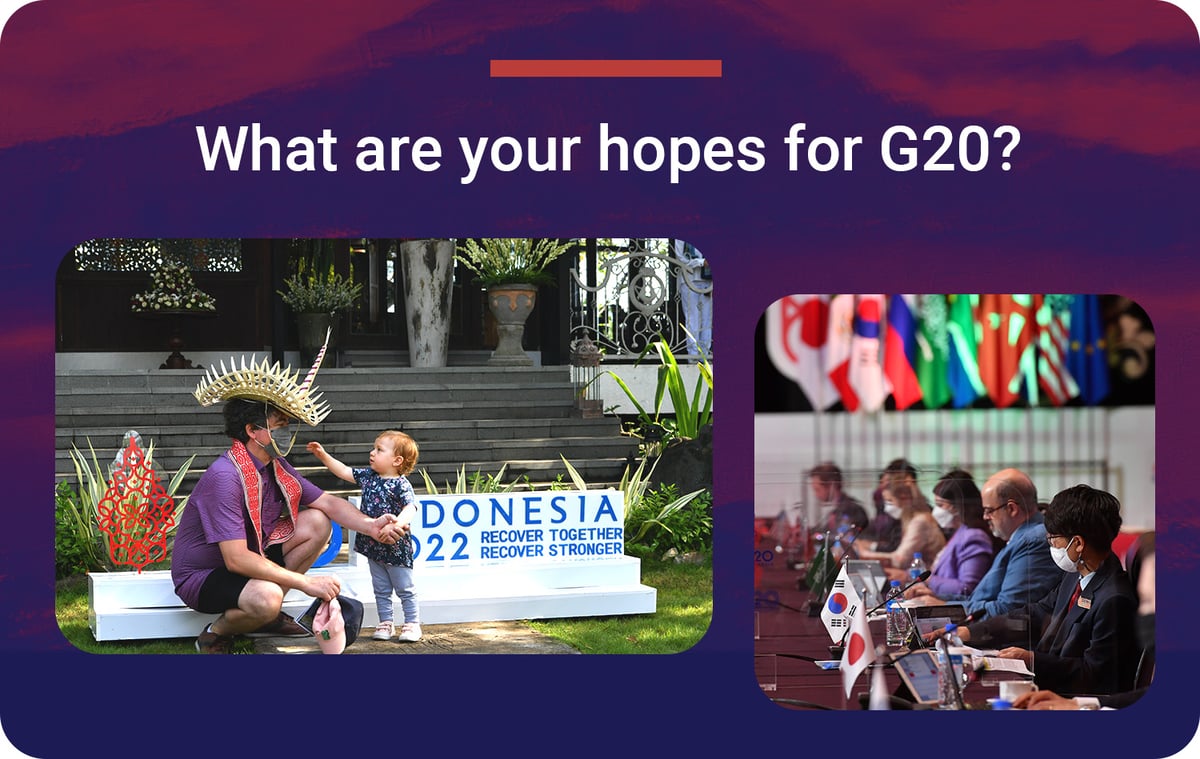
Recover Together, Recover Stronger: How Indonesia Is Building a Resilient Global Health Architecture
“We should stop seeing healthcare as a cost; we must see it as a real investment that benefits individuals, communities, societies and economies.” As countries emerge from the long shadow of the pandemic, the words of Dr. Rifat Atun, Professor of Global Health Systems at Harvard University, hold true.
On top of devastating human losses, Covid-19 will wipe $12.5 trillion from the global economy through 2024 (IMF). No other event in recent history has revealed the interdependence and vulnerability of global economies, global health and global cooperation so profoundly.
Ahead of the 17th G20 Summit in November 2022, Bloomberg Media Studios spoke to Indonesia’s Minister of Finance, Her Excellency Sri Mulyani, on turning the global impact of Covid-19 into renewed impetus for closer cooperation, and building a more resilient, inclusive and financially robust global health architecture.

Minister Sri Mulyani: Covid-19 is not the first pandemic, nor is it going to be the last. The world was definitely not prepared for the last two and a half years. Apart from uneven preparedness across countries, there was no single code of conduct on information sharing, tracking, and response and reporting. Within the G20, we recognize that we need to respond better, especially as pandemics become much more frequent.
In a borderless, mobile and interconnected world, we’ve also seen that any risk to individual countries can quickly become a global systemic risk. This means that beyond the national level, pandemic preparedness at the regional as well as global level is crucial.
And financing is very, very important. Since Italy’s G20 presidency, the G20 has initiated a high-level panel to discuss global health governance as well as financing needs, including ways to better prepare for future pandemics. How can we as a group of the 20 biggest economies in the world better support the existing mechanism: the World Health Organization, whether in terms of mobilizing resources, upsizing or providing emergency financing through multilateral development banks, as well as financing the vaccine?
After identifying the annual $10.4 billion that is needed for pandemic preparedness and response, the next question is what kind of format this global financing should take. Under President Jokowi, Indonesia has used its G20 presidency to rally the G20’s support for the Financial Intermediary Fund (FIF) within the World Bank. We are delighted that the FIF was officially established on 9 September.
More than $1.4 billion has already been contributed by 14 G20 and non-G20 countries, in addition to philanthropies and international players. This is very important progress: recognizing that health is a necessary condition for all economic development. Any threat to the health and the safety of the people is going to be the utmost priority for any country to deal with.

Minister Sri Mulyani: All countries face limited resources, no matter if they’re rich, middle-income or low-income. There are so many needs and objectives compared to the resources available, so it's about choices and trade-offs. For Indonesia, which also represents many countries in the world, we know that the welfare of the people, our productivity, and our economic performance and competitiveness will really depend on the quality of our human resources.
Our human capital is very important. That's why we have set these allocations in the budget. Our Constitution mandates that at least 20% of our spending should be on education, and at least 5% on healthcare.
It’s also about creating the right institutional setting for health and education. These services cannot be managed by the central government, especially in a country as large as Indonesia. We have more than 267 million people, so the role of the local government is crucial. Within a country, healthcare systems may differ across central and provincial levels, and across cities or municipalities. That's why it’s about strengthening healthcare as a priority across every level of government.
The third focus is, of course, universal health coverage. A country can have noble objectives of covering our population on the health services, but can easily get trapped in unsustainable healthcare that is just too expensive, or inadequate in terms of services or resources.
Sustainable health financing is about affordability from the population’s point of view, from the healthcare industry’s point of view and from the budget’s point of view. This is the triangle that needs to be continuously recalibrated in order for us to be able to find the right balance. There’s a lot of experience that Indonesia can share. We see pandemic preparedness as not only building global preparedness, but also reforming our own health system, which we think is very important.

Minister Sri Mulyani: At the start of Indonesia’s presidency, the vaccine was already invented, but very unevenly distributed. There are so many barriers to access. It is not only the cost of the vaccine – the nature of the vaccine requires storage at extreme temperatures of -70 degrees Celsius. Many poor countries don't have the health systems and cooling boxes needed to distribute the vaccines to remote areas.
The discussion regarding how we should address the pandemic in a more inclusive and comprehensive way is very, very important because no one should be left behind. The pandemic is not over until everybody is cured, and pandemics will not discriminate between low-income, middle-income or high-income countries. That's exactly why the debate regarding inclusivity needs to take place.

Minister Sri Mulyani: First, it is really a privilege and honor for Indonesia to host the G20, and to take on this responsibility at a very important time globally. As an independent country among the global community, Indonesia should be able to play a constructive, positive role in maintaining what we call the world peace order.
At a very critical time with the G20, we also hope to come up with solutions to key threats to the global economy. Our economy, politics and security cannot be separated. We firmly believe that the world should be peaceful, and prosperity should be shared equally.
The other hope, of course, is that the series of G20 meetings in Indonesia will create excitement among our population. It's also aiding our recovery process because people are coming back to Indonesia. Although some meetings are still hybrid, more and more visitors are coming here physically.
That gives us great confidence in recovering from the pandemic. Our message is that Indonesia is a great place, a peaceful place, a beautiful place to visit, and our hope is that the G20 will not only bring about strong results for the world, but also spill over domestically in terms of economic and social benefits. That's definitely important for us.
This article is part of Bloomberg Media Studio’s partnership with Indonesia’s Ministry of Communication and Information Technology, showcasing how the country is driving solutions for today's biggest challenges through its G20 presidency. Learn more about the other two G20 themes: Digital Transformation and the Sustainable Energy Transition.
